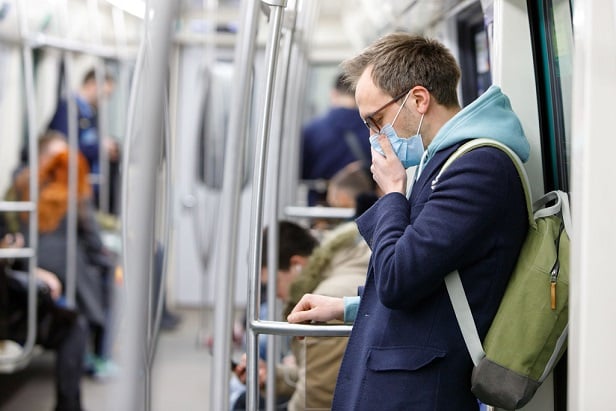 When it comes to taking action against the virus, Republicans and older people are less likely to say they've changed any of their personal habits. (Photo: Shutterstock)
When it comes to taking action against the virus, Republicans and older people are less likely to say they've changed any of their personal habits. (Photo: Shutterstock)
If you can't figure out whether your health coverage will be up to the coronavirus challenge, you're not alone—especially considering all the mixed messages coming out of Washington these days.
In fact, 69 percent of enrollees, according to a survey from eHealth, Inc., say they lack a basic understanding of their plan—interestingly, more men than women say they do understand their plan, at 36 percent compared with 27 percent—and 64 percent overall say they couldn't cover their full annual deductible if they end up hospitalized for treatment of COVID-19.
Related: Insurers loosen regulations to help curb coronavirus outbreak
"Health insurance enrollees may find some comfort in knowing that the new coronavirus is covered much like any other illness by their major medical health plan. Most will find that testing for the virus is covered with no out-of-pocket cost," says eHealth CEO Scott Flanders.
Flanders adds, "Unfortunately, our survey finds that many will struggle to pay their full deductible if hospitalized for treatment of the virus. We encourage consumers to familiarize themselves with the details of their coverage now and contact their insurer or licensed agent with questions or concerns."
Unsurprisingly other survey findings include the fact that those with college degrees and those who are affluent can cope with necessary changes as the nation shuts down to slow the progress of contagion. Among college graduates, 52 percent say they have a job that lets them work from home; even more of the affluent—60 percent of those whose incomes range from $100,000–$150,000—say the same.
But 51 percent of respondents overall say they cannot do their jobs from home. And among those with just high school diplomas, only 19 percent say they could work from home, while just 36 percent of those who make less than $25,000 annually say they could do so.
When it comes to taking action against the virus, Republicans and older people are less likely to say they've changed any of their personal habits; 29 percent of Republicans and 26 percent of those aged 55–64 say they have not made any changes. And 21 percent of respondents overall say they're not at all concerned about the virus.
Read more:
© 2025 ALM Global, LLC, All Rights Reserved. Request academic re-use from www.copyright.com. All other uses, submit a request to [email protected]. For more information visit Asset & Logo Licensing.







